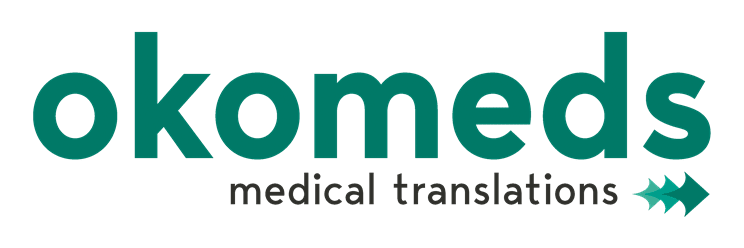
11 Jan 7 risks of using AI in medical translation
I am sure you are well aware that AI is advancing by leaps and bounds in every field and medical translation is no exception. Medicine is also constantly evolving, and the smooth exchange of medical knowledge is becoming necessary. This is where the translation of medical documents with AI comes into play, allowing professionals, institutions and patients to overcome language barriers. However, it also poses considerable dangers, especially in such a sensitive area. This issue needs to be taken very seriously. Do you know the risks of using AI in medical translation? Keep reading, we’ll tell you all about it!
What are the risks of using AI in medical translation?
The use of AI in medical translation has proven to be a valuable tool for streamlining communication in multilingual medical environments due to its speed and efficiency. However, as with any technology, complications can always arise.
We don’t want you to jeopardise the health of society, so we invite you to find out about the risks of using AI in medical translation! You need to be aware of these so you can make tactical use of it.
1. Translation errors
Machine translations still contain translation errors, especially in technical terms, medical acronyms and medicine dosages. In addition, the AI could have potential errors in its algorithm, which could lead to serious problems, mistranslations or even offensive translations.
2. Limited contextual understanding
AI does not understand contexts: neither medical, nor human, nor cultural, which leads to inaccurate translations. On the one hand, medical terminology is complex and can vary in meaning depending on the context. On the other hand, not considering patient and culture information may result in translations that do not correspond to the patient’s needs or are not culturally appropriate.
3. Lack of language databases for less common languages
It is important to note that machine translation is not as accurate for minority languages as it is for more common languages, especially English. These languages therefore have a significantly lower machine translation quality, which can lead to misunderstandings. This is because the amount of data in these languages that can be used for training is smaller.
4. Data protection and privacy
Medical documents contain highly confidential information, on both patients and research. The use of AI in medical translations raises public concerns about the privacy of patient data and information, as these systems could be exposed to cybersecurity risks or leaks of sensitive data.
5. Legal and ethical responsibility
You need to know how to use AI well and understand when it can or cannot be used. If an inaccurate automatic translation leads to risks for the patient, there are still no rules that fully determine the actions that could be taken by physicians, medical institutions and public officials. This is quite a serious issue. However, if you want to use AI but don’t want any problems, we recommend contacting a professional medical translator to proofread it afterwards.
6. Over-dependence
Beware of AI as it can lead to over-reliance on technology. This, in turn, could reduce the ability and responsiveness of healthcare professionals to communicate effectively in other languages or even diminish their critical thinking.
7. Developments in medicine
Medicine is constantly evolving and AI cannot be updated at the same pace, which would lead to translation errors. For example, new terms or situation may arise for which there is still no established translation. When translating research and other documents, you have to understand that AI translations will contain errors and that a professional translator will have to review the translation to ensure that the text is correct.
Balancing innovation with accuracy to avoid the risks of using AI in medical translation
AI is changing the way that medical professionals access and share information in different languages. This rapid evolution of technology is forcing us to adapt to an increasingly automated world and we must accept that this is the new reality. Even so, human professionals still remain irreplaceable and offer a subtlety and precision that AI alone cannot yet achieve.
This becomes evident once we understand the risks of using AI in medical translation. The best approach therefore is to consider these tools as a way to make the job easier, while still using professional translators if we want accurate work and do not want to potentially harm third parties.
Translation errors can have serious consequences and a direct impact on patient health, so don’t gamble with this. If you are looking for a medical translation team, don’t hesitate to contact Okomeds. We help pharmaceutical, scientific and healthcare companies reach global markets. Can we help yours too?






Sorry, the comment form is closed at this time.